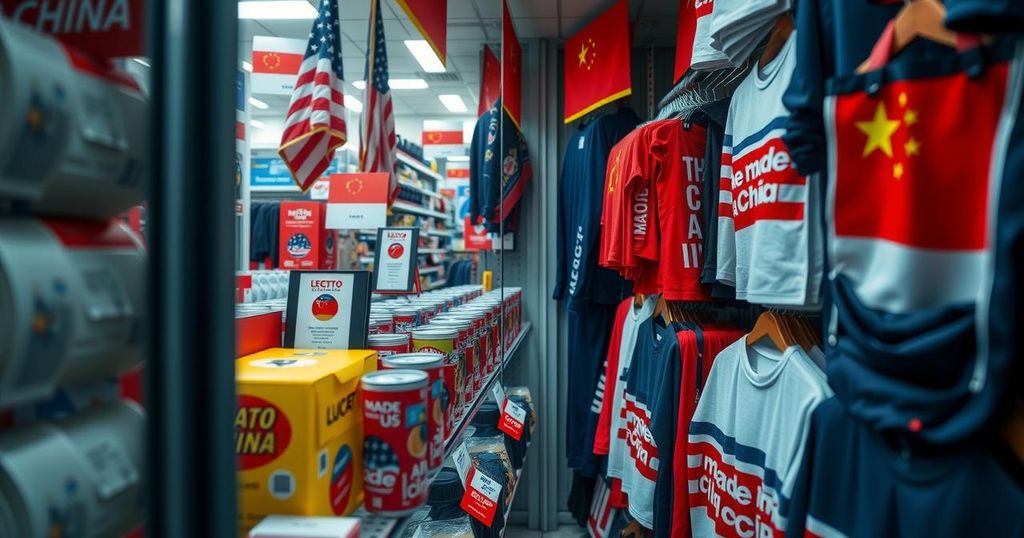In the lead-up to the U.S. presidential election, a significant amount of campaign merchandise is being sourced from China, leading to challenges for domestic manufacturers. E-commerce platforms offer these products at significantly lower prices, which has resulted in decreased sales for U.S.-made items. This raises concerns about the implications of consumer support for foreign products, particularly in light of the candidates’ promotion of American manufacturing. The situation underscores the complexities faced by the U.S. textile industry and highlights the need for awareness and advocacy for domestic production.
The United States is witnessing an overwhelming influx of presidential election merchandise, much of which is being produced in China. As individuals express their political preferences through various products, from “Make America Great Again” hats to unique campaign T-shirts, a significant majority of these goods are imported at far lower prices than those produced domestically. E-commerce platforms, particularly Temu, Amazon, and eBay, serve as primary channels for this merchandise, often offering items at a fraction of the cost when compared to their American-made counterparts. For instance, while U.S.-produced campaign T-shirts can retail for approximately $15, similar items on Temu are available for as little as $3. This price discrepancy has raised concerns among American manufacturers, as they struggle to compete against the cheaper alternatives flooding the market. Quotes from industry participants indicate that the ease of purchasing lower-cost goods, alongside lax trade policies, has severely undermined the American manufacturing sector. Furthermore, anecdotes suggest that the current election cycle has seen reduced sales of domestically produced campaign merchandise in comparison to previous years. Amidst this turmoil, there is an apparent irony as both presidential candidates advocate for stronger U.S. manufacturing while their supporters inadvertently contribute to this trade imbalance by purchasing Chinese-made products. Overall, the trends indicate that the U.S. textile industry, alongside broader manufacturing sectors, faces significant challenges as consumers opt for cost over domestic production, thereby complicating efforts to strengthen the nation’s manufacturing capabilities.
In the context of the upcoming U.S. presidential election, the market for campaign merchandise has become a central point of discussion, especially regarding its production origins. As political candidates rely increasingly on merchandise to bolster their campaigns, allegations have arisen regarding the true nature of these goods. Notably, many items are manufactured abroad, primarily in China, which allows for substantial price reductions. The de minimis loophole in U.S. trade policy further exacerbates this issue by permitting goods valued at less than $800 to enter the country without incurring import duties, giving foreign products a competitive edge over American-made options. This situation presents a unique dilemma: while American consumers benefit from lower prices, these choices are detrimental to domestic manufacturers who are striving to maintain their market share amidst overwhelming competition.
The influx of Chinese-made election merchandise poses significant challenges to American manufacturers as they navigate an increasingly competitive marketplace characterized by lower-priced goods. As U.S. voters inadvertently support foreign production through their purchasing choices, industry leaders emphasize the need for greater awareness of the implications of these trends on domestic manufacturing. The ongoing debate encapsulates a broader dialogue about the importance of supporting local industries while balancing consumer desires for affordability. Without concerted efforts to address trade loopholes and reinforce domestic production, the prospects for American manufacturers remain uncertain as election cycles continue to unfold.
Original Source: www.voanews.com






